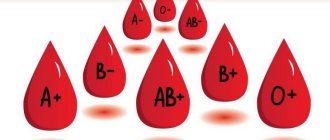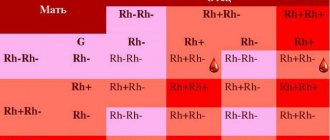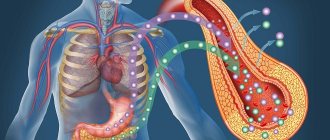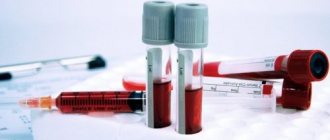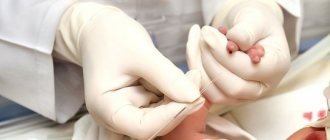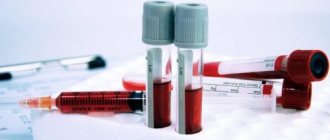Violent feelings and pragmatism in life are incompatible things: when two loving people meet, it is not customary to be interested in their blood type. As practice shows, unfortunately. The ideal psychological and sexual compatibility of people in love can be overshadowed by incompatibility in blood type and Rh factor.
The latest research on the role of blood type on conception, published by Turkish scientists, states that men with blood type O are four times less likely to develop impotence compared to guys with other blood types. Experts from Ordu University in Turkey noted that blood type is as important a risk factor as smoking, excess weight, and high blood pressure. The reason is not clear, but scientists have stated that in people with the second blood type, the penis has a large number of veins, the lining of which can be damaged, which leads to erectile dysfunction.
Blood type also affects female fertility. Girls with the second group are more likely to bear a healthy child for a long time than with the first. Studies have shown that women in the first group quickly deplete their egg reserves early in life. But at the same time, women with the first group have a lower risk of developing preeclampsia - high blood pressure during pregnancy, which can be dangerous for the mother and child.
Be that as it may, life does not always happen “according to science,” which is why our article was written.
Rhesus (Rh) How is it transmitted to the child?
What is rhesus?
What is its effect on the intrauterine development of the fetus? Rhesus or Rhesus factor are lipoproteins (complex proteins) that live in the membrane of red blood cells. 85% of people have it, and the remaining 15% do not have complex protein at all. The first are classified as Rh positive (Rh+), and the second are Rh negative (Rh-). To establish the rhesus of a newborn, blood is taken from the heel and one pair of genes is examined.
A positive Rh factor (Rh+) is dominant and is designated DD (completely positive) or Dd (partially positive - heterozygous). Rh negative (Rh-) is recessive (weak) and is symbolized by dd. In the case when both parents have a Dd combination, that is, there is a clear dominant and recessive trait in the blood, they will be Rh positive.
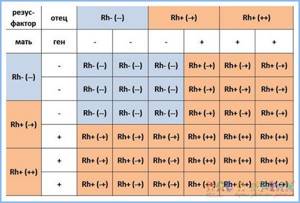
Regarding their offspring - 75% that they will be positive and 25% - negative. If both parents or only one are Rh positive, the child can inherit both the plus and minus. Parents with a minus, children will only be Rh negative.
In genetics there is a definition of “Rh - conflict”. A very dangerous answer from a mother for a baby. This is due to the fact that when the baby’s red blood cells enter the mother’s blood, the mother’s body begins to produce antibodies against them.
Antibodies cause hemolytic disease of the fetus, which can lead to jaundice or anemia in the newborn, or worse, miscarriage. Mutations also happen. The gene set and number of red blood cells of an infant differs significantly from the gene set of the parents. Such a case is rare and happens once in a million.
Conditional classification of marital incompatibility
We talk about infertility when a couple does not use contraception, has regular sex life, and at the same time cannot get the woman pregnant within a year. Typically, in such situations, a series of tests and diagnostic procedures are prescribed to help understand which spouse is sick. Their list includes blood tests for a hormonal panel, pelvic ultrasound in women, spermogram in men and some other tests. But it also happens that the state of health (in particular, reproductive health) of partners is regarded as good or satisfactory, but fertilization does not occur, or the pregnancy ends in miscarriage.
Experts conditionally classify reproductive incompatibility of partners as immunological and genetic.
Immunological incompatibility of spouses , contrary to common misconceptions, is not incompatibility based on blood type or Rh factor. And although with a negative Rh factor in a woman and a positive Rh factor in a man, an Rh conflict is possible during pregnancy, this cannot affect the ability to conceive and bear fruit. The situation is similar with blood groups - this parameter does not in any way affect fertilization and the course of pregnancy.
The diagnosis of “immunological infertility” is valid if a woman’s body secretes specific antibodies that destroy the healthy sperm of her husband. In everyday language, this phenomenon is often called “sperm allergy.” The active production of antisperm antibodies in a woman’s blood does not allow the male reproductive gamete to carry out its direct function. It is noteworthy that immunological compatibility has a detrimental effect not only on conception, but also on pregnancy. The presence of specific antibodies can lead to acute toxicosis, delays in fetal growth and development, and spontaneous abortion.
Genetic incompatibility of a married couple is even more complex. Fertilization can occur quite quickly, but the child may develop genomic pathologies and chromosomal abnormalities, for example, Down syndrome. Sometimes these aberrations lead not only to the baby’s disability, but also to diseases incompatible with life. The genes for the vast majority of hereditary pathologies are recessive, which means that both parents who passed on a particular disorder to their child are absolutely healthy.
The probability of inheriting genetic diseases in numbers:
- If both parents are carriers of recessive genes – 25% of births (1/4 of all cases);
- If one of the parents is a carrier of a recessive gene - 50% of those born (1/2 of all cases), but here only the carrier state is adopted, i.e. the child will not receive the pathology during his lifetime, but will be able to pass it on to his offspring.
In other cases, children are born absolutely healthy, and do not even become carriers of “damaged” genes. Interestingly, in subsequent pregnancies the risk of conceiving and giving birth to a sick baby decreases even with bilateral carriage of recessive genes.
Genetic incompatibility should also include miscarriage against the background of specific biochemical processes associated with hereditary information. Every person has a special protein called HLA (leukocyte antigen) on the surface of their cells. It is designed to destroy or deactivate foreign bodies in the body. In case of a specific danger, the protein sends a signal to the immunological system so that it synthesizes antibodies to various pathogenic invasions (IgG, IgM, IgA). If the HLA of a man and a woman are almost identical, the pregnancy proceeds normally. If they have significant differences, and the fetus inherits HLA from the father, the mother’s cells mistakenly begin to fight a non-existent disease, rejecting the embryo.
Rh factor inheritance
This protein is inherited according to a dominant principle, that is, its presence is encoded by a dominant gene. For example, if this gene is designated by the letter D, then a Rh-positive person may have a DD or Dd genotype. With the dd genotype, the blood will be Rh negative.
| Mother's Rh factor | Father's Rh factor | Rh factor in a child |
| Minus (dd) | Plus (DD) | Plus (Dd) |
| Minus (dd) | Plus (Dd) | Plus (Dd) or minus (dd) |
| Plus (DD) | Plus (DD) | Plus (DD) |
| Plus (DD) | Plus (Dd) | Plus (DD or Dd) |
| Plus (Dd) | Plus (DD) | Plus (DD or Dd) |
| Plus (DD) | Minus (dd) | Plus (Dd) |
| Plus (Dd) | Minus (dd) | Plus (Dd) or minus (dd) |
How can we help you?
Despite the fact that complete immunological or genetic incompatibility is extremely rare and is rather an exception to the rule, in certain cases competent specialists still come to disappointing conclusions. If, after undergoing examination and treatment, you still have not managed to conceive a child on your own, naturally, do not despair. Modern reproductive technologies will ensure you happiness in motherhood and fatherhood.
The New Life Clinic offers “incompatible” spouses the following ART services:
- Artificial insemination with husband's or donor's sperm;
- Oocyte donation;
- ICSI (sperm injection into the egg);
- IMSI-ICSI (injection of sperm into the egg with optimized selection of sperm);
- PIXIE;
- IVF (in vitro fertilization);
- Surrogacy program.
Today, when medicine has seen global progress, there are fewer and fewer hopeless situations. We offer you a range of diagnostic and therapeutic services that will allow you to verify this for yourself.
If mom and dad's blood types are different
With a different group of parents, there will be even more options for passing on genes.
| Mom's blood type | Father's blood type | Child's blood type |
| First (00) | Second (AA) | Second (A0) |
| First (00) | Second (A0) | First (00) or second (A0) |
| First (00) | Third (BB) | Third (B0) |
| First (00) | Third (B0) | First (00) or third (B0) |
| First (00) | Fourth (AB) | Second (A0) or third (B0) |
| Second (AA) | First (00) | Second (A0) |
| Second (AA) | Third (BB) | Fourth (AB) |
| Second (AA) | Third (B0) | Second (A0) or fourth (AB) |
| Second (AA) | Fourth (AB) | Second (AA) or fourth (AB) |
| Second (A0) | First (00) | First (00) or second (A0) |
| Second (A0) | Third (BB) | Third (B0) or fourth (AB) |
| Second (A0) | Third (B0) | First (00), second (A0), third (B0) or fourth (AB) |
| Second (A0) | Fourth (AB) | Second (AA or A0), third (B0) or fourth (AB) |
| Third (BB) | First (00) | Third (B0) |
| Third (BB) | Second (AA) | Fourth (AB) |
| Third (BB) | Second (A0) | Third (B0) or fourth (AB) |
| Third (BB) | Fourth (AB) | Third (BB) or fourth (AB) |
| Third (B0) | First (00) | First (00) or third (B0) |
| Third (B0) | Second (AA) | Second (A0) or fourth (AB) |
| Third (B0) | Second (A0) | First (00), second (A0), third (B0) or fourth (AB) |
| Third (B0) | Fourth (AB) | Second (A0), third (BB or B0) or fourth (AB) |
| Fourth (AB) | First (00) | Second (A0) or third (B0) |
| Fourth (AB) | Second (AA) | Second (AA) or fourth (AB) |
| Fourth (AB) | Second (A0) | Second (AA or A0), third (B0) or fourth (AB) |
| Fourth (AB) | Third (BB) | Third (BB) or fourth (AB) |
| Fourth (AB) | Third (B0) | Second (A0), third (BB or B0) or fourth (AB) |
Plasma compatibility
The rules for plasma compatibility are identical to the rules for compatibility by blood group, however, the following feature must be noted here: due to the content of the first group of agglutinins α and β in the plasma, this plasma should be administered in a limited volume (Ottenberg’s rule). And plasma of the fourth group can be transfused to patients with any group, because it does not contain agglutinins at all.
In cases where the need for urgent blood transfusion exceeds the risk level of possible consequences from blood transfusion of samples that have not been fully tested, the responsibility falls on the doctor. Therefore, if possible, surgical procedures should be delayed until adequately matched blood samples can be found. Also, special attention should be paid to clear and correct filling out of documents, for which purpose the office must be kept quiet and orderly on the desktop.
AB0 system
This system for the typology of blood groups began to be used in 1900, when the presence in the blood (on red blood cells) of antigens, which were called agglutinogens, as well as antibodies to them, which began to be called agglutinins, was discovered. Agglutinogens are A and B, and agglutinins are designated alpha and beta. Possible combinations of such proteins create 4 groups:
- 0 (first) – contains alpha agglutinin and beta agglutinin.
- A (second) - contains beta agglutinin and A agglutinogen.
- B (third) - contains alpha agglutinin and B agglutinogen.
- AB (fourth) – contains A agglutinogen and B agglutinogen.
- Which blood type suits everyone: transfusion compatibility, Rh factor
Compatibility tests
It should be emphasized that there is no test to confirm or deny compatibility. First, specialists find out all the probable causes of infertility in a particular union, and only then prescribe the appropriate in-depth studies.
If immunological incompatibility is suspected, the man should be examined first.
The list of primary analyzes includes:
- Spermogram (in particular, with detailed morphology);
- Postcoital test (Shuvarsky test);
- Laboratory tests and hardware studies of the genitourinary system.
- Immunological tests for antibodies (anti-paternal, anti-sperm, MAP test, Anti-hCG)
The woman, in turn, should seek a comprehensive assessment of her immune status and be tested for antisperm antibodies.
In case of genetic incompatibility, a more extensive list of diagnostic tests is prescribed.
It includes tests such as:
- Karyotyping of spouses;
- Study of chromosomal aberrations and genetic mutations;
- Gene polymorphisms;
- HLA gene typing;
- An extensive study of the spouses' pure DNA.
Each partner will also be assigned a consultation with highly specialized specialists - a gynecologist-endocrinologist, an andrologist, and a geneticist.
Blood groups and heredity

Revolution in evolution: Nobel in chemistry awarded for “genetic scissors”
The genome editor makes it possible to get rid of many hereditary diseases
In the world, there are four blood groups, which correspond to genotypes: the first (I) 00, the second (II) AA; A0, third (III) BB; B0 and fourth (IV) AB.
“Blood type and Rh factor are proteins that are found on the surface of blood cells,” explains Medical Director of Lifetime+ Kirill Yuvchenko. — Previously, they were classified into only four, then the second group was divided into subgroups A and B. The Rh factor was previously divided into positive and negative, but then a number of other factors began to be taken into account. In the current classification, 24 blood groups can already be distinguished, but, based on the classical division, there are still four of them.
The first, or so-called zero, group does not contain special proteins on the surface of red blood cells that determine the blood type. The second blood group has type A protein. The third has type B protein. The fourth has both type A and type B protein.
Blood for blood

Photo: RIA Novosti/Pavel Lisitsyn
“There are many options for inheritance,” says Izvestia’s interlocutor. - If both parents have the first blood group, then the child will also have the first blood group. If only one has the first blood group, and the second, for example, has the fourth and he can pass on both protein type A and protein type B to the child, then the child will have either a second or a third blood group. If both parents have the fourth blood group, then any of the four groups can result.
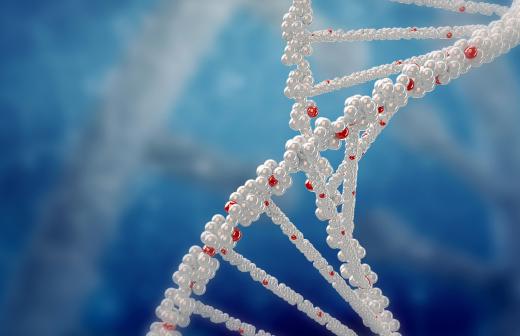
Face-to-face insert: where does the human gene fragment come from in SARS-CoV-2?
The new coronavirus could cross the species barrier back in 2012
If parents meet with the second and third groups, any options are also possible, the doctor explains.

